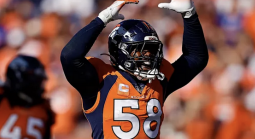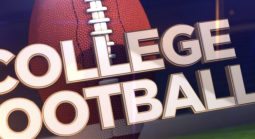Somach: Solving The NFL Overtime Dilemma

Fortunately for the NFL, the Super Bowl once again did not go into overtime (it never has).
But if it had, you could have expected a lot of complaints afterwards, particularly if only one team got to touch the ball.
Overtime has been a dilemma for the NFL.
When a game goes into overtime and the team that wins the OT coin toss marches down the field, makes a field goal and wins the game--without the other team ever getting a chance to score--there's an outcry from fans (especially those of the losing team).
It's not fair that both teams didn't get a chance on offense, the fans complain.
The NFL retorts: Over the years, teams that win the OT coin toss only win the game about 50% of the time, so the rule is hardly unfair.
Plus, the NFL contends, teams losing the OT toss can win an overtime game on defense, as happened in this year's playoffs.
Had the 2010 Super Bowl gone into overtime and one team won without the other getting the ball, all hell would have broken loose, and the impetus would likely have finally been provided to change the OT rule to something that's perceived as more fair.
So what should the NFL do?
In college and high school football in the USA, both teams are guaranteed a possession in OT.
In overtime, teams alternate back and forth with the ball until one team outscores the other after an equal number of possessions.
But the format is hokey--it's not real football at the end, because the ball is automatically placed near the goal line each time to assist scoring.
In the old World Football League, a pro league that briefly competed with the NFL in the 1970s, games tied at the end of regulation went into overtime.
But the overtime wasn't suden death, as in NFL games, a full period was played.
And if the game was still tied, more periods would be played until one team led at the end of an OT period.
That could get tedious.
So what is the NFL to do?
 Gambling911.com has a solution, if you're listening, Roger Goodell (the commissioner of the NFL).
Gambling911.com has a solution, if you're listening, Roger Goodell (the commissioner of the NFL).
If an NFL game is tied at the end of four quarters, have overtime but continue the game from where it was.
That is, the team that had the ball at the end of regulation keeps the ball to start OT, and at the point where it had been on the field.
If regulation ends, for example, with the Colts at the Saints 30-yard line and it's third down, sudden death OT begins with the Colts at the Saints 30-yard line, third down.
If the Colts open the OT by running a few plays and then kicking a field goal to win the game, no one can complain--just as no one complains when a team kicks a last-second field goal in regulation to win a game.
If that's where the ball is, that's where it is--regulation or OT!
By Tom Somach
Gambling911.com Staff Writer













